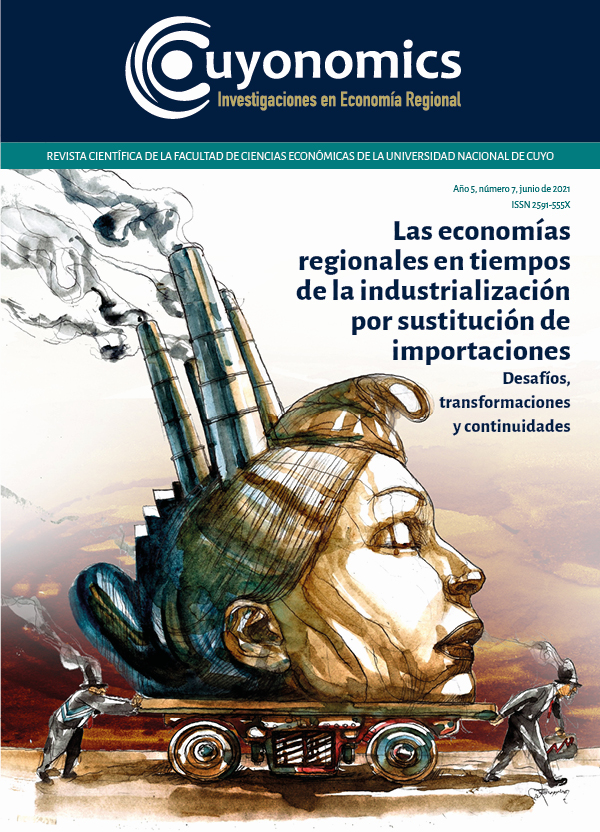Industry and public policies in Jujuy in Great Depression context. Crisis and regional economies
Crisis y economías regionales
DOI:
https://doi.org/10.48162/rev.42.026Abstract
Argentine historiography has recurrently boarded the links between economic crises and industrialization. However, approaches across the country hide the particularities of peripheral economies on this national context. This paper analyses the relationship between the Great Depression and the industrial performance of Jujuy (Argentina), taking particular account of the responses provided by the province for the effects of the 1929 crisis. It combines the bibliographic review corresponding to the research problem in the 1930s with the analysis of historical sources, such as general censuses, industrial statistics, political discourses and laws. It emerges from the analysis that the local state, unlike the national state, undertook an active policy aimed at industrializing and substituting imports, continuing similar initiatives exhibited in the province in previous years in order to imagine alternatives to Argentina’s still dominant growth model.
Keywords: economic crisis; industry; industrial policy; regional economy
Downloads
Downloads
Published
How to Cite
Issue
Section
License

This work is licensed under a Creative Commons Attribution-NonCommercial-ShareAlike 4.0 International License.
Los contenidos de la revista se encuentran bajo una licencia CC BY-NC-SA 4.0 (Creative Commons Atribución - No Comercial - Compartir Igual 4.0 Internacional.
Los editores se atienen a lo establecido por la ley 11723 - Régimen Legal de la Propiedad Intelectual.




